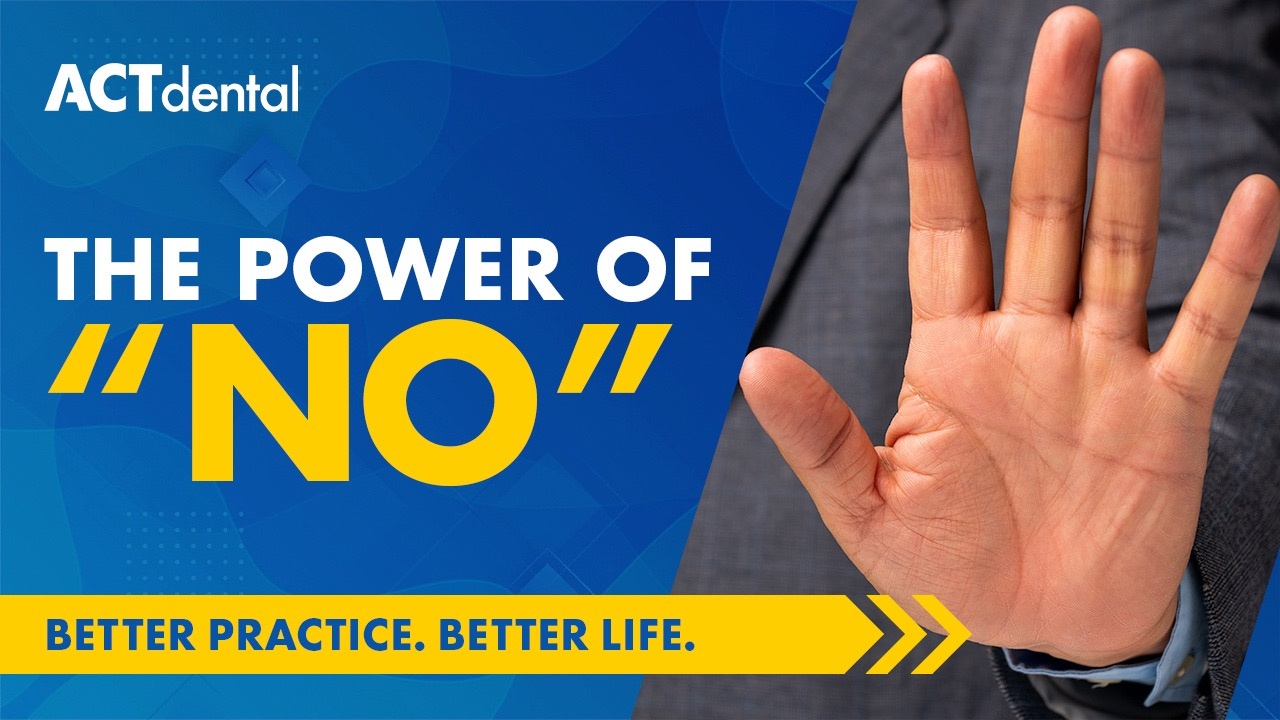There’s a saying that Kirk frequently uses: “Time is the new rich.” As we move through life, we realize that what’s important is the time we spend with our family, loved ones, or even by ourselves pursuing the things that bring us joy—not the money we get from working too much. Finding that time, however, is where it gets tricky, but there’s a secret to it: saying “no.” There are some lessons you learn along the way that you wish you’d learned earlier, and the word “no” is one of them. It’s number six on Gino Wickman’s 10 Disciplines for Managing and Maximizing Your Energy, as described in detail in his fabulous book The EOS Life, and it gives you more freedom, more joy, and more time.
When you first start your business, you have to say “yes” to a lot of things, because it’s how you create inertia and learn how to do everything for your business. As you get to know yourself and become more self-aware, however, you’ll discover things you hate doing, such as procedures you learn you’re not good at and shouldn’t be doing, or cases that keep you late into the evening or force you to work on the weekend. When you get to the point where you say, “I can’t do this anymore,” it’s time to learn to say “no.”
Look to Your Values
As with all things in the practice, saying “no” comes back to your core values. In Traction, Gino Wickman talks about how your core values give you the clarity you need to move forward and know when to say “yes,” and when to say “no.” Your core values have to be there, because they make it so much easier to make decisions. Jenni Poulos and I like to say that your core values are the third person in the room you should run everything by before making a decision, because when you vet them against your core values, you’ll know you’re doing what’s right for you and the practice, even if it’s saying “no.”
It’s How You Say It
It feels kind of icky to say it, especially when you’re not used to it, but the more you say it, the easier it gets. In fact, try saying “no” a few times today, and watch how it doesn’t destroy your practice—people won’t freak out, and you’ll free up some time. I think one of the primary reasons why people don’t like saying “no” is that it makes them feel like they’re a horrible person who’s letting others down. In that case, find a different, more kind way to refuse. Kirk’s suggestion? Four words: “I’d love to. Can’t.” When you say that, you’re still honoring their request but you’re also letting them know you have boundaries.
Embrace the Power
There’s so much power in the word “no.” We can say “yes” to so many things, but we need to pause and reflect on the things in our life before we do, because you’re going to have to give something up in exchange for that “yes.” Instead of sacrificing what’s important to you, say “no” to:
- Evening hours. It changes your life when you establish work boundaries and ensure that you have personal time.
- Unacceptable behavior. Draw a line in the sand and keep your culture intact.
- Things you don’t enjoy. When you delegate the tasks you don’t like to other people, you will flood your schedule with the things you enjoy, letting you elevate them.
“No,” according to Kirk, “is the great simplifier,” because it lets you cut out the things that steal your energy, pull you in different directions, and waste hundreds of hours. A trick he learned from his mentor, Dr. Pete Dawson, is to take a 3”x5” index card and draw a line down the middle. As you go through your week, write the things you love doing on one side, and the things you loathe doing on the other. Once a quarter select one of the things you loathe and remove it from your life—over time you’ll cut back on the things you loathe and do more that you love.
It’s crazy important to take time for yourself, your family, and your team. It’s so easy to get stuck in the vicious cycle of saying “yes” to everything and never having time for the things you love, but by saying “no” you can break those chains. Reach out to the ACT team and schedule a call with our coaches, so they can help you bring the joy and free time you need to create a Better Practice, and a Better Life!
Heather Crockett
Heather Crockett is a Lead Practice Coach who takes joy in not only improving practices, but improving the lives of those she coaches as well. With over twenty years of combined experience in assisting, office management, and clinical dental hygiene, her awareness supports many aspects of the practice setting. Heather received her dental hygiene degree from the Utah College of Dental Hygiene in 2008. Networking in the dental community comes easy to her, and she loves to connect with like-minded colleagues on social media. Heather enjoys both attending and presenting continuing education to expand her knowledge and learn from her friends and colleagues. She enjoys hanging out with her husband, three sons, and their dog Moki, scrolling social media, watching football, and traveling.
RECENT POSTS
H.A.L.T. Before Giving Feedback
October 13, 2025
955: Metric Mondays: Unscheduled Active Patients – Miranda Beeson
October 13, 2025
Data Snapshot: Scheduled Production
October 10, 2025
953: The Importance of Muscle Health for Dentists – Dr. Uche Odiatu
October 08, 2025
Are You Guilty Of Swoop & Poop Leadership?
October 06, 2025
952: Metric Mondays: Fluoride Percentage – Miranda Beeson
October 06, 2025
Stand Out Above the Rest
October 03, 2025
951: 7 Toxic Habits Hurting Practice Culture – Adriana Booth
October 03, 2025
